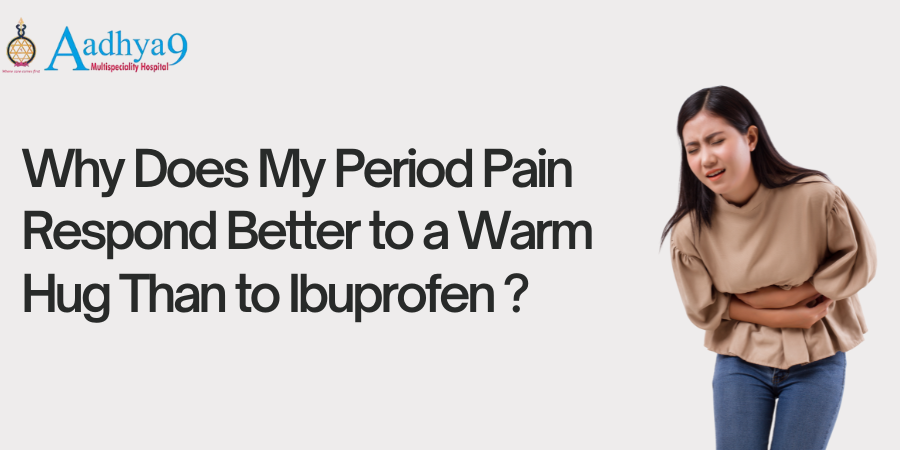You know the narrative: ovulation is when libido is supposed to skyrocket. It’s nature’s perfect timing — you’re fertile, confident, glowing, and supposedly craving intimacy. But for you, it’s the opposite. Right in the middle of your cycle, when everyone says desire should peak, you feel completely disinterested — even repelled by the idea of sex.
You’re not broken. In fact, your body might be giving you one of the most honest, intelligent, and nuanced signals it can. Libido is never just about hormones — it’s about safety, emotional context, nervous system state, trauma history, and body memory. Let’s explore why your libido might disappear during ovulation — and why that’s not only real, but meaningful.
Isn’t Ovulation Supposed to Increase Libido?
From a purely biological perspective, yes.
What usually happens:
- Estrogen peaks right before ovulation, which can increase energy, confidence, and sensitivity.
- The body may produce more pheromones and exhibit subtle physical changes (glowier skin, increased lubrication).
- Testosterone rises slightly, which can support desire.
- It’s the most fertile time — and from an evolutionary standpoint, procreation requires attraction.
But biology isn’t destiny. You’re more than a reproductive machine — and your experience of libido is deeply contextual.
So Why Does My Desire Vanish at the “Peak”?
Here are real, research-supported and trauma-informed reasons why ovulation might feel like an emotional and sexual shutdown instead of a high:
1. Heightened Sensory Overload
During ovulation, your:
- Senses are sharper
- Vagina and vulva may feel more sensitive or inflamed
- Cervix is higher, softer, and more open
For people with vaginismus, endometriosis, chronic pelvic tension, or sexual trauma, this state may trigger:
- Discomfort with touch
- Avoidance of stimulation
- A sense of emotional or bodily overwhelm
Your body may say: “This feels too much — I need space.”
2. Subconscious Reproductive Aversion
Some people (especially those who have chosen not to get pregnant or have trauma related to pregnancy) may experience:
- Unconscious stress at the idea of fertility
- Fear of conception
- Aversion to “being open” or “accessible”
Even if you consciously want intimacy, your body may interpret ovulation as a biological vulnerability window — and respond with protective disinterest.
3. Nervous System Dysregulation
If your body is in sympathetic dominance (fight or flight mode), desire is often the first thing to shut down.
Ovulation already creates:
- Increased heat, energy, and charge in the body
- A sense of openness (cervix, energy, emotions)
If your nervous system perceives openness as unsafe, your libido may vanish as a protective measure.
4. Trauma-Linked Sensations Around Fertility
If you’ve experienced:
- Sexual trauma
- Pregnancy loss
- Shaming or confusing sex education
- Coercion or manipulation around sex or reproduction
Then ovulation might unconsciously remind your body of those past experiences. Even if no memory surfaces, the hormonal and pelvic shifts during ovulation can activate stored emotional content — resulting in emotional shutdown.
5. Cervical or Pelvic Floor Sensitivity
During ovulation, the cervix changes position and texture. This can:
- Feel uncomfortable or “off”
- Interfere with arousal
- Cause postural or tension shifts
If you’re sensitive to your internal anatomy (or have hypertonic pelvic floor muscles), ovulation might create a sensation of being “on edge” — which is not conducive to desire.
6. Libido Isn’t Just Physical — It’s Relational and Emotional
You may have:
- Relationship dynamics that feel strained
- Emotional disconnection from a partner (or from yourself)
- Body image issues that intensify mid-cycle
- Shame or stress around pleasure
Ovulation tends to amplify everything — including the things that get in the way of desire. If there’s unresolved tension in your emotional or relational world, ovulation shines a light on it.
What Does This Feel Like?
You might notice:
- Zero interest in sex, even if you were interested earlier in the cycle
- A sense of “energetic irritability” or emotional distance
- Discomfort being touched or held
- Increased anxiety or pressure around intimacy
- Feeling emotionally exposed but also emotionally distant
How Can I Track If This Is an Ovulation-Linked Pattern?
Use a cycle tracking method for 3+ months:
- Note the first day of your period as Day 1
- Ovulation often occurs around Day 13–16 in a 28-day cycle
- Track libido, arousal, comfort with touch, and relational dynamics
If your desire consistently drops during ovulation, you’re looking at a real, pattern-based phenomenon.
What Can I Do If I Want to Reconnect With Desire?
Start with nervous system safety, not performance goals.
Try:
- Restorative practices during ovulation: slow walks, nature, stretching
- Solo touch or body awareness with no goal of arousal
- Reframing pleasure as safety-based, not performance-based
- Talking openly with a trusted partner about the need for emotional space
Don’t force arousal. Instead, listen to what your body needs: gentle reconnection, patience, and emotional honesty.
Could Hormonal or Nutritional Support Help?
Yes — especially if ovulation is overwhelming. You might try:
- Magnesium: Calms nerves and softens tension
- L-theanine: Reduces anxiety and supports relaxation
- Omega-3s: Regulate inflammation and hormone balance
- Vitamin B6 and B-complex: Support mood and hormone detox
Support your gut health and liver as well — they help clear estrogen, which spikes around ovulation.
When Should I Seek Professional Support?
If your lack of libido during ovulation causes:
- Distress or relationship tension
- Emotional shutdown that lasts several days
- Re-traumatization or physical discomfort
- Confusion or guilt around your cycle
Then it’s worth working with a:
- Trauma-informed therapist
- Pelvic floor therapist
- Functional medicine or hormone-literate provider
- Sex therapist with menstrual cycle literacy
Your experience is valid and treatable, not shameful.
Summary: When Ovulation Doesn’t Equal Desire
Your libido disappearing during ovulation doesn’t make you broken — it makes you sensitive, aware, and honest.
Ovulation is a time of intensity — not just fertility. For many, that intensity brings emotional or sensory overload, unresolved trauma responses, or nervous system defenses. Instead of pushing through, the invitation is to listen closely.
Key Takeaways:
- Libido is more than hormones — it’s nervous system safety and emotional readiness
- Ovulation can bring sensory overload or emotional activation
- Tracking, rest, and gentle bodywork can support reconnection
- Your experience is real — and you have nothing to prove


